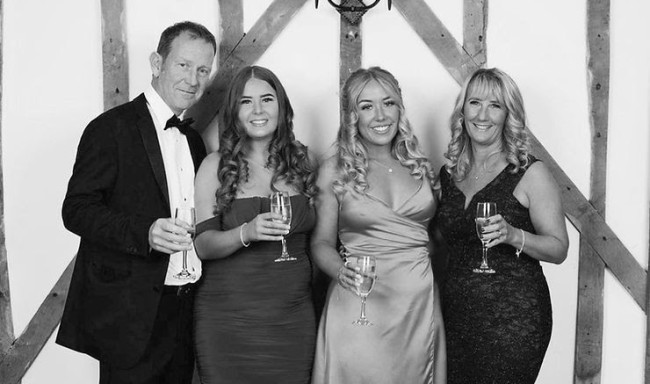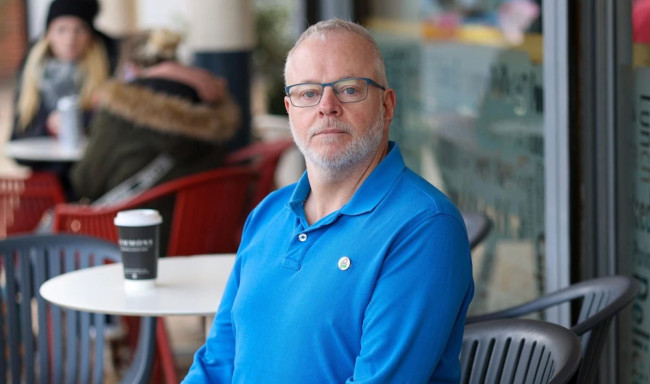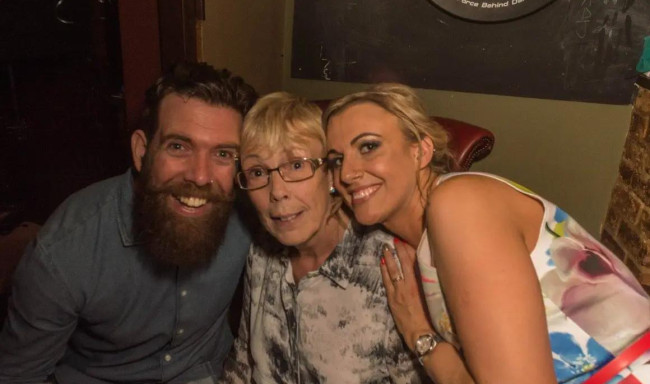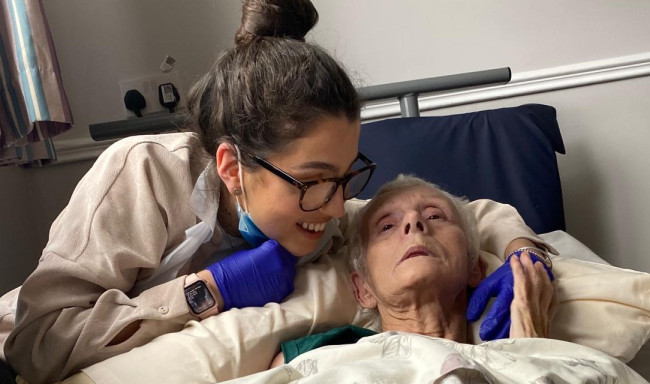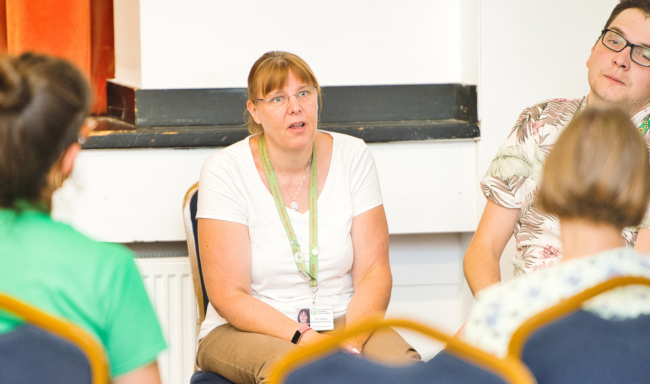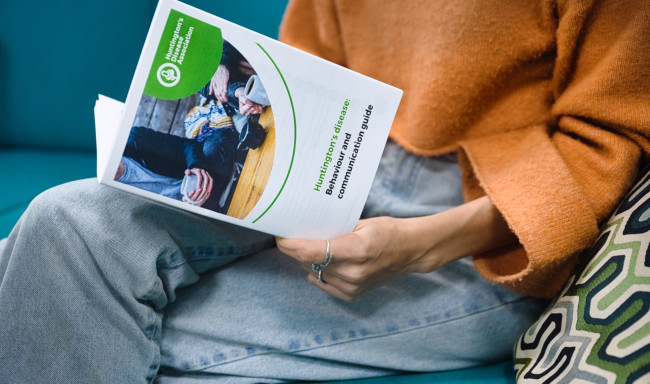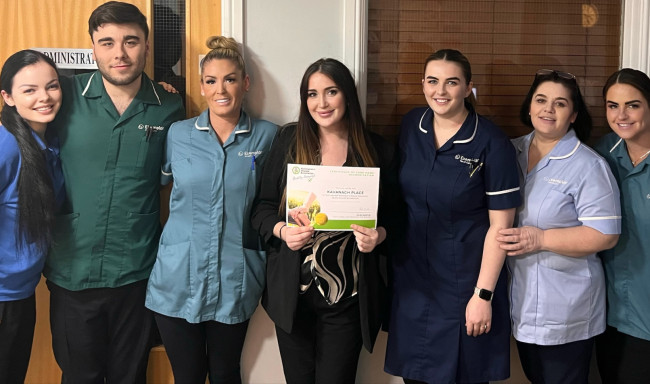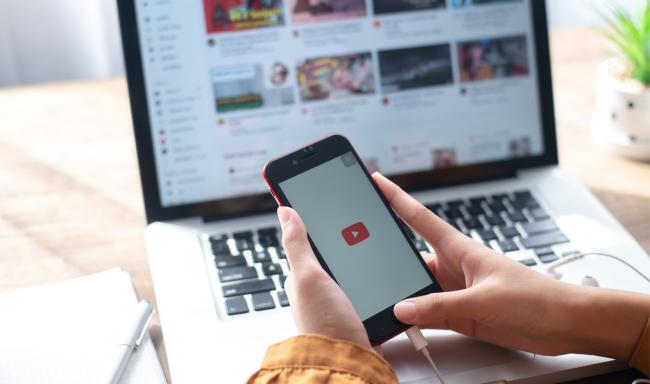The impact on a carer's life does not end once their loved one has passed. For many, they are left with a void to fill and a loss of connection to the outside world.
We spoke to Huntington’s advocate, Jackie Harrison, on her experience with Huntington’s, the multiple roles she took on as a carer and finding a new purpose once her caring role came to an end.
Please tell us a little bit about yourself and your experience with Huntington’s disease?
"I am the third generation of a Huntington’s disease family. The first generation was my grandfather who died before I was born. The second generation was my mum and uncle who both inherited the faulty gene. Barry, my uncle, died at 44 and my mum Jean died at just 48. I was 12 years old and my brother Mark was six when she died. We were left in the care of our amazing Nana who, after losing her husband and both children to Huntington’s, became our guardian. Nana died when I was 18 so instead of going to university as I might have done, I became Mark's legal guardian and got a job to support us both. Mark was bright and got A levels before going on to get two degrees - English at Leeds University and History at Huddersfield but throughout this time he struggled with mental health issues. When he was in his early thirties it was clear he had also lost the genetic toss of the coin and was displaying the all too familiar symptoms of Huntington’s. This is when became his full-time carer."
What was daily life like as a carer?
"Caring for Mark was complicated and difficult. We were just six years apart in age and I had to take on the parental role of a teenage boy. As the disease progressed, the depression and obsessive facets of the disease became more apparent and the chorea was becoming more obvious leading to the all too familiar spills, trips and falls as well as the staring in the street. Huntington’s is a slow and gradual loss with everything changing and ultimately Mark needed help with every aspect of his life."
Tell us a little bit about the changes that you had to make and what you had to learn along the way?
"Everything changes for those caring. In the brief period when Mark was reasonably well (though he lived with me all of his life), I managed to get a degree and teaching qualification so I had a short period of teaching part-time. This was cut short when it became clear that Mark needed full-time care. You end up playing multiple roles: social worker, advocate, physio, dietician, entertainer, shopper - the list is endless. Carers allowance is a pittance and does not reflect 24/7 care 365 days a year.
Towards the very end of his life, we did get extra help to help with some of the more personal care. Mark was mostly accepting of this help but it was really a matter of months prior to this that I had done everything. Mark did agree to respite but we were unable to find anything suitable. I think many families struggle to find suitable respite which leads to more upset in routine so any rest is soon forgotten. Mark became very ill in the summer of 2019 before the pandemic but I was able to stay with him and be with him at the end of his too-short life."
After caring, what did you do and how was the transition?
"Caring ended with bereavement and the shock, grief and trauma that goes hand in hand with the death of a loved one after witnessing the negative impact that Huntington’s can have on the human body and mind. I’d given up everything to become a full-time carer. As well as losing a loved one, there are other losses. There is a huge financial aspect as carers allowance ends - often carers only benefit, yet emotionally you are not well placed to enter the world of work and other than caring feel unqualified to do anything else. I’ve been a part of the online Huntington’s community for many years and continue to raise awareness with Hounds4Huntington’s and #SybilOnTour. I have also done the occasional talk. We recently moved to the coast trying to find some purpose and we are just taking each day at a time."
Do you have any advice for others who are going through a similar experience to yourself?
"For anyone who finds themselves in a similar situation, the most important thing I think is connecting with others in a similar situation for listening ears, support and virtual hugs which we never dreamed would be the norm. Accept help if it’s offered - practical help is invaluable. The endless cleaning up, sorting out, chasing up is exhausting. Savour the moments of calm or fun of joy like having an ice cream or kissing an alpaca. These are priceless and give you the resilience and strength to carry on caring for those who can no longer care for themselves."


Thank you to Jackie for sharing her story, we hope that this insight into her caring role can help others. If you have a story to share, please get in touch with us via email.
If you are affected by Huntington’s disease and are in need of support or advice, please contact us on 0151 331 5444 or email info@hda.org.uk. Our dedicated phone line is open 9 am – 5 pm, Monday – Friday with Specialist Advisers waiting at the other end to offer you support.
If you are a carer for a loved one, you can find information on how to get support here.

